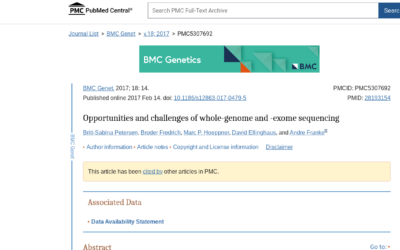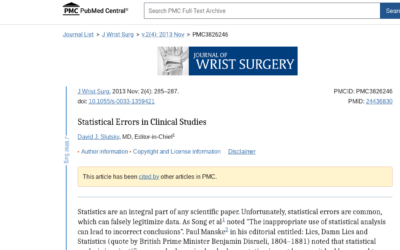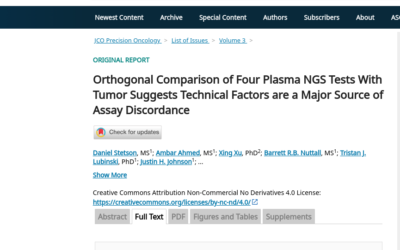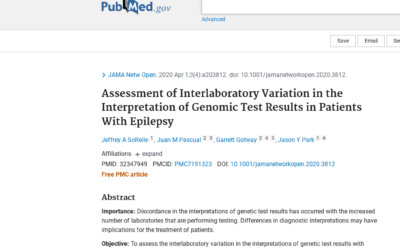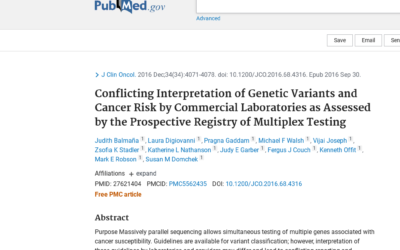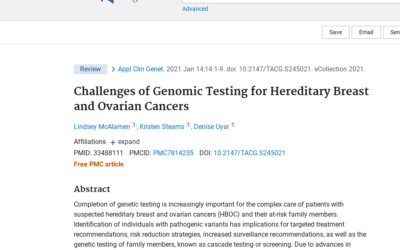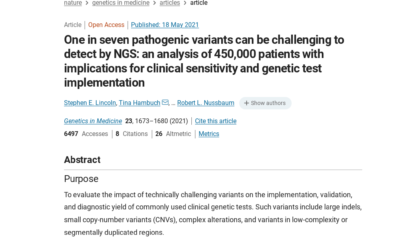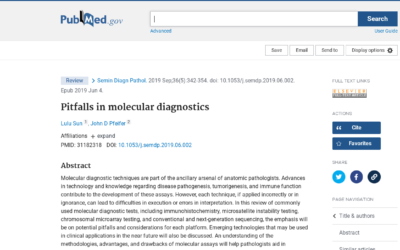“With the generation of genomics data continuously becoming easier and cheaper, the interpretation of the large amounts of data and the identification of the relevant disease-causing environmental factors will remain the biggest challenges of the years to come.”
Statistical Errors in Clinical Studies
“A common error is to assume that the sensitivity and specificity of a test equates to diagnostic accuracy. The whole point of a diagnostic test is to use it to make a diagnosis, so we need to know the probability that the test will give the correct diagnosis. The sensitivity and specificity do not give us this information. Instead we must approach the data from the direction of the test results, using predictive values.”
Orthogonal Comparison of Four Plasma NGS Tests With Tumor Suggests Technical Factors are a Major Source of Assay Discordance
“Our orthogonal approach identified false-negative (FN) and false-positive (FP) variants with high confidence and revealed substantial variability among the ctDNA assays, with a range of sensitivity (38% to 89%) and positive predictive value (36% to 80%). “
Assessment of Interlaboratory Variation in the Interpretation of Genomic Test Results in Patients With Epilepsy
“In this cross-sectional study, most interpretations of genetic variants associated with epilepsy were concordant among laboratories, but more than half of the variants with conflicting interpretations occurred in genes that have therapeutic implications.”
Conflicting Interpretation of Genetic Variants and Cancer Risk by Commercial Laboratories as Assessed by the Prospective Registry of Multiplex Testing
“Among all participants, 56 of 518 (11%) had a variant with conflicting interpretations ranging from pathogenic/likely pathogenic to VUS, a discrepancy that may alter medical management.”
Challenges of Genomic Testing for Hereditary Breast and Ovarian Cancers
“At times, the sheer quantity of information provided by NGS leads to more questions than answers, a concept known as the Next-Generation Sequencing Paradox:41 the more genes tested in a panel, the greater the likelihood of VUS detection and the greater the ambiguity of the test results. “
One in seven pathogenic variants can be challenging to detect by NGS: an analysis of 450,000 patients with implications for clinical sensitivity and genetic test implementation
“The analytic and clinical sensitivity of NGS workflows can vary considerably, particularly for prevalent, technically challenging variants. This can have important implications for the design and validation of tests (by laboratories) and the selection of tests (by clinicians) for a wide range of clinical indications.”
Aligning Genetic and Genomic Test Reimbursement With Value of Tests
“In the U.S., clinical genetic and genomic testing labs provide diagnostic, predictive, prognostic, and theragnostic tests with perceived clinical value—a perception is frequently untethered from reality. This means that many patients are inadvertently harmed when well-meaning clinicians use low-value and inaccurate tests in patient care.”
Pitfalls in Molecular Diagnostics
“Molecular diagnostic techniques are part of the ancillary arsenal of anatomic pathologists. Advances in technology and knowledge regarding disease pathogenesis, tumorigenesis, and immune function contribute to the development of these assays. However, each technique, if applied incorrectly or in ignorance, can lead to difficulties in execution or errors in interpretation.”
